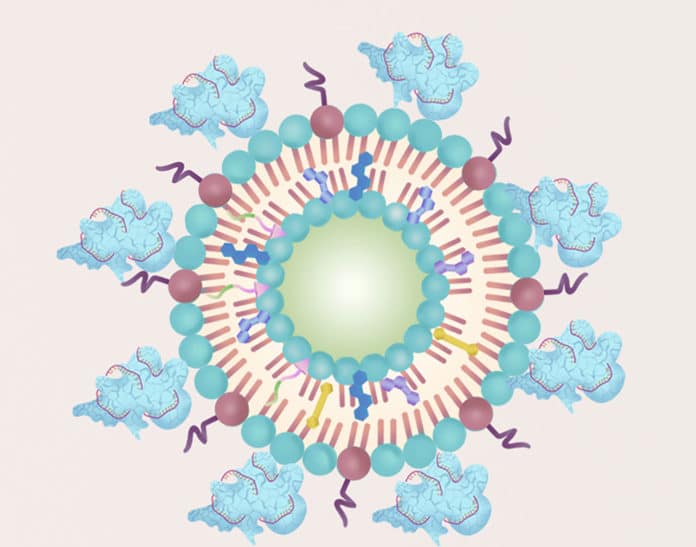Sonodynamic therapy (SDT) is an emerging approach involving low-intensity ultrasound and specialized chemical agents known as sonosensitizers. It releases harmful reactive oxygen species (ROS) at the tumor site.
Cancer cells can activate antioxidant defense systems to counteract it, so the treatment is not considered very effective.
Scientists reported breaching these defenses using CRISPR/Cas9 gene editing in a new study. CRISPR/Cas9 gene-editing allows sonodynamic therapy to shrink tumors in a mouse model of liver cancer effectively.
Cancer cells can quickly overcome sonodynamic therapy by activating a nuclear factor erythroid 2-related factor 2 (NFE2L2) gene. The NFE2L2 deploys the cells’ detoxification and antioxidant enzyme defenses. Cas9 gene-editing technology is known for breaking down gene expression in the lab.
Hence, scientists wondered if they could increase sonodynamic therapy’s effectiveness by using this technology to reduce NFE2L2 expression.
Scientists started with encapsulating the CRISPR/Cas9 system and a ROS precursor molecule in lipid nanoparticles. They then treated hepatocellular carcinoma cells in a petri dish with the nanoparticles.
The cell’s lysosomes then took the lipid nanoparticles. ROS formation caused by ultrasound treatment ruptures lysosomes. It also enables the CRISPR/Cas9 system to enter the nucleus and break down NFE2L2 gene expression. The ROS also damaged other cellular components.
As a result, the therapy kills more cancer cells without NFE2L2 gene editing.
Scientists injected the nanoparticle treatment into mice with implanted human hepatocellular carcinoma tumors. After 15 days of follow-up, scientists did not find any tumor in the mice. The tumors in the mice disappeared and didn’t come back.
Scientists acknowledged, “Mice treated with sonodynamic therapy alone had fewer tumors than untreated mice, but the addition of the CRISPR/Cas9 gene-editing significantly improved the therapy’s effectiveness. Because gene editing occurs only in tumor tissues under ultrasound irradiation, it won’t cause gene mutations in healthy tissues.”
Journal Reference:
- Haohao Yin, Liping Sun, Yinying Pu, et al. Ultrasound-Controlled CRISPR/Cas9 System Augments Sonodynamic Therapy of Hepatocellular Carcinoma. DOI: 10.1021/acscentsci.1c01143
